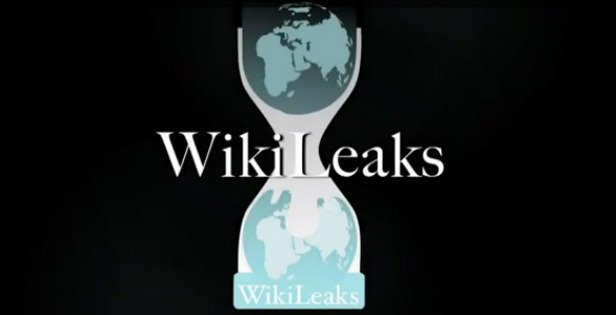
Post intervention civil war, pre UIC (1995-2005)
Since then, the civil war has continued unabated. The smaller northern populations in Somaliland and Puntland have enjoyed relative stability, while elsewhere factions, militias and warlords have struggled to control territory, people and resources. UN and regional efforts to achieve ceasefires repeatedly failed; attempts to form temporary governments repeatedly failed; attempts to achieve peace repeatedly failed. Outside Somaliland and Puntland, the rest of the country, in particular the capital Mogadishu, remained without any effective government.
The ability of Somalis to survive in Mogadishu under conditions of widespread brutality and violence testifies to their resilience. To cross from one warlord’s region into another involved major risk; sometimes even to leave one’s house entailed major risk. Nevertheless, many of the bazaars and markets continued to function. Life goes on.[4]
Anarcho-capitalists regard the situation in Mogadishu as hopeful, pointing the way, they say, to an apparently utopian model of a capitalist economic system without a state. As evidence they cite the better functioning of the telecommunications system than some nearby countries (Somalia has 15 telephones per 1000 people, rather than 10 as in neighboring countries). Never mind that the network is operated in conjunction with major multinational corporations such as Sprint and Telenor, that the system was established with the help of the UN and the International Telecommunications Union, and that the Somali Telecom Association is headquartered outside the country in Dubai. They cite private provision of water access. Never mind that many families are now in debt for water, and that no market incentive or regulatory obligation has convinced those private operators to purify their water: access to safe water is low even by African standards. They also cite air travel operation without any government regulation. Never mind that other countries are relied upon to maintain aircraft, and that Somali airports operate without trained aircraft controllers, fire crews, runway lights, or even fences to keep out stray animals. Perhaps there’s an anarcho-capitalist utopia, but Somalia is not the model.[5]
We may admire the hardiness of Somalis and their ability to continue life, in many respects as normal, under such adverse circumstances. They have continued with traditional institutions and systems, which help to maintain social cohesion. They have endured the ravings, the egos, the bullying and the brutality of the warlords; and as the warlords have been banished from ever larger parts of the country by the Union of Islamic Courts, they have applauded, if nothing else, their newfound ability to go about their lives unhindered.
The rise of the Union of Islamic Courts (2000-)
It may well seem like a miracle: indeed, some have explicitly said so. The Union of Islamic Courts (UIC), existing in some form since 2000, only became a powerful political and military entity in early 2006. Major fighting was reported in March, and by June they had taken the capital Mogadishu. The warlords fled, and suffered defeat upon defeat. The Islamic Courts have swept all before them – even Mogadishu garbage, which hadn’t been collected since 1991 – and are now fighting for the one remaining town, Baidoa, seat of the transitional federal government (TFG), which is defended by Ethiopian planes, troops and artillery, and backed diplomatically and financially by the US and UN.
As already mentioned, the UIC is somewhat unusual, compared to other factions in the civil war. After the collapse of government in 1991, aided by businessmen desiring an orderly commercial environment, Sharia courts became the main judicial system, and evolved to provide education, health care and police services. They gained widespread public support, and helped to reduce robberies, drug-dealing and prostitution. The militias which enforced their decisions evolved into the fighting force which has effectively conquered most of the country. The affiliation of the courts is somewhat loose: each court makes its own decisions, and different courts and judges apply Sharia law in different ways. Somalia is a deeply Muslim nation, but has historically practiced a relatively mild form of Islam. The membership and leadership of the Courts both contain a spectrum of Islamic thought, from liberal to Wahhabist. This notable inclusiveness reflects the federalist structure of the UIC.
The UIC, through support from local imams, has gained significant popular legitimacy. Citizens can be expected to appreciate the work of any organization which ends years of violence and establishes peaceful social relations. But it appears that the uniquely religious, social and judicial elements of the UIC have also helped them to gain support, and to establish alliances with which to secure and consolidate power. The enforcement of conservative Islam may become repressive and unpopular where it occurs, but at least for an initial period, the UIC carries a significant amount of public goodwill. They have brought peace over regions they control, built schools and hospitals, created a form of justice and a stable business environment through their courts, and have emerged victorious. Numerous defections of enemy troops to the UIC have been reported throughout their advances; they are certainly seen as more legitimate than the warlords in the TFG. Nonetheless, their takeover of Mogadishu and the threat of full-scale war led to a stream of 18,000 refugees into Kenya by August.
On the other hand, the TFG may not have ever possessed as much legitimacy as its UN approval might suggest. Of course, as the result of an internationally-brokered agreement between major factions, it certainly has the potential to become a legitimate national government. But quite apart from Somalis’ ongoing mistrust of international institutions, the TFG’s very nature erodes its legitimacy. Being a compromise of the physically powerful, it includes hated warlords among its ranks, incorporating them into major ministerial posts. As the UIC took control of Mogadishu, the militias fighting against them were led by warlords who were ministers in the TFG, fighting in a ‘private’ capacity. At least some those ministers were expelled from the TFG shortly afterwards.
TO BE CONTINUED………NEXT WEEK
